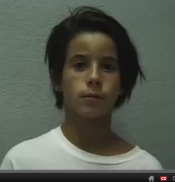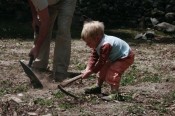 Middle School Science With Roberto Trostli
Middle School Science With Roberto Trostli Space speaks. Its language is movement.
Space speaks. Its language is movement. Apply Today: New Cohort Starts Nov. 2025
Apply Today: New Cohort Starts Nov. 2025 Immersive Academics and Arts
Immersive Academics and Arts Full-Time Teacher Education
Full-Time Teacher Education Everything a Teacher Needs
Everything a Teacher Needs Great books for Waldorf Teachers & Families
Great books for Waldorf Teachers & Families Caring for All Stages of Life
Caring for All Stages of Life Flexible preparation for your new grade
Flexible preparation for your new grade Waldorf Training in Australia
Waldorf Training in Australia Quality Education in the Heartland
Quality Education in the Heartland Jamie York Books, Resources, Workshops
Jamie York Books, Resources, Workshops Bay Area Teacher Training
Bay Area Teacher Training Waldorf-inspired Homeschool Curriculum
Waldorf-inspired Homeschool Curriculum Roadmap to Literacy Books & Courses
Roadmap to Literacy Books & Courses
 Summer Programs - Culminating Class Trips
Summer Programs - Culminating Class Trips Transforming Voices Worldwide
Transforming Voices Worldwide Association for a Healing Education
Association for a Healing Education The Journey is Everything
The Journey is Everything Train to Teach in Seattle
Train to Teach in Seattle Bringing Love to Learning for a Lifetime
Bringing Love to Learning for a Lifetime ~ Ensoul Your World With Color ~
~ Ensoul Your World With Color ~
Would you like to become a sponsor?
Waldorf News

Eugene Schwartz: Online Teacher Training, The Challenges of China and Anthroposophy for Teachers
April 5, 2012
From the moment I began recording my lectures in the 1980s I was told that “Neither Anthroposophy nor Waldorf education can be disseminated without the live presence of a human being standing before you.” We must realize, however, that the people who tend to say that sort of thing were not on earth when Rudolf Steiner was a “live presence.” They learned about Anthroposophy from Rudolf Steiner’s books. And Steiner was clear that it is possible for a spiritual teacher in our time to be embodied in a book, so that he becomes “mobile” and people can encounter him or her in freedom and when the time is ripe. Most Waldorf teachers under age 30 have no problem with online learning, and I am interested in how many teachers in their 50s tell me that the most exciting thing about my online conference is that it helped them overcome their fear of computers and the Internet. It is likely that within the next decades far more people will encounter Anthroposophy through the radiant light of computer screens and devices rather than via the reflected light of the page of a book. More »

The Waldorf Promise: Working with at-risk youth and high-risk juvenile offenders
April 1, 2012
Later, during an English class, I noticed a fifteen-year-old I’ll call Robert waving his hand desperately. A small boy with an angelic walnut-brown face, Robert had been expelled from his previous school for smoking marijuana; soon after his arrival at Mathews, he jumped out the probation officer’s window and ran away. On the day I visited, Robert sat attentive throughout a two-hour class. When the teacher finally called on him, he flawlessly recited six lines memorized from The Merchant of Venice. In the early days, Evelyn Arcuri, the teacher, said later, when she asked the students to return their materials, “they would just toss stuff at me. Now there’s better control. They’re more engaged.” I noticed something similar. One twelve-year-old boy sat with me after school, regaling me, in enthusiastic detail, with a creative mixture of Greek and Roman history. The boy could barely read, but he’d been inspired by the oral storytelling that Waldorf teachers emphasize. These roughnecks even like Waldorf’s focus on art. Thomas, an outgoing and restless seventeen-year-old, had found that when he was forced to draw pictures of stories he had read or heard, “you get more visual ideas of what you’re doing.” Arcuri believes she can see that the students are learning more from what they draw. “This year kids are saying, ‘Can I take this home?’ We never had that happen before.” More »

The Autism-Vaccine Debate: Why It Won't Go Away
March 30, 2012
In general, it is the most highly educated parents who are now eschewing the CDC schedule and vaccinating their children at a different pace. In one recent presentation of data, for example, mothers with masters degrees were significantly more likely to forego the Hepatitis B vaccine birth dose than mothers with an 8th grade education. Why do so many educated, successful parents still believe that the current vaccine schedule can hurt a small percentage of susceptible kids, and that some of those injuries might result in an autism spectrum disorder (ASD)? Despite all of the population studies showing no link, high-profile court cases that went against parents, insistence of omniscience by health officials and the public mauling of Andrew Wakefield, I don't think that many people around here have changed their minds. That's because evidence of a vaccine-autism link did not come to them via a 12-year-old study published in a British medical journal, nor from Hollywood celebrities: Not very many had heard of Wakefield until recently. Some of these parents actually keep up with the science, including a new review of autism studies in the Journal of Immunotoxicology which concludes: "Documented causes of autism include genetic mutations and/or deletions, viral infections, and encephalitis following vaccination." Some of their evidence also comes from life -- from friends, family and business associates whose children had an adverse vaccine reaction, got sick, stopped talking and never recovered. More »

Violent Games DO Alter Your Brain - and the effect is visible in MRI scans in just a week
March 30, 2012
Violent video games and other computer entertainment have long been criticised for damaging youngsters’ brain. But activists such as Oxford Professor Baroness Greenfield have often presented little science to back up their allegations. However, extensive research into the subject has now provided worrying results that support her claims. ‘Screen technologies cause high arousal which in turn activates the brain system’s underlying addiction,’ the neurologist said last month in an attack that accused games of causing ‘dementia’ in children. ‘This results in the attraction of yet more screen-based activity.’ And now the first genuinely scientific attempt to analyse the emotive subject has thrown up astonishing results that suggest she is right. Differences in brain activity between young men who played violent games and ones who didn’t were visible in a randomly assigned sample in just one week. More »

Semillas de Vida: Sowing Seeds of Life in Peru
March 26, 2012
‘Semillas de Vida’ is a new Waldorf inspired, community elementary school located just outside of Huaraz, Peru. The name of the school means ‘seeds of life’, its mission is to provide the educational elements that children need, to grow into healthy, inspired, informed, and compassionate adults. The project came into being as an extension of an organic community garden started two and a half years ago by a group of friends in Huaraz who wanted to explore both healthier eating options for themselves and their families as well as create a clean and aesthetic natural area they could spend their weekends working and playing in, something that did not exist in the city of 100,000+ habitants. The garden community began with 15 people who over the course of time transformed a dry, infertile plot of land just outside of town into a thriving garden and a lovely recreational area that they opened to the community each weekend. More »
 Recent Jobs
Recent Jobs
View more jobs »
 Newsletter Archive
Newsletter Archive
 Join the Mailing List!
Join the Mailing List!
Stay Connected…
Each week receive the Waldorf News Weekly Update, full of news, events, and more. Keep abreast of what's happening with Waldorf education.
 RSS Feeds
RSS Feeds